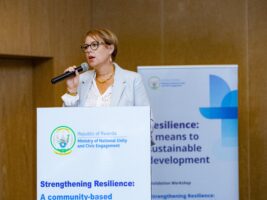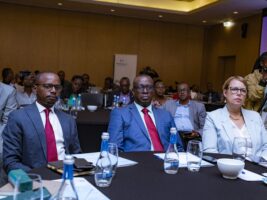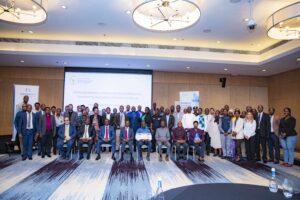The launch of Rwanda’s first Resilience Assessment Framework
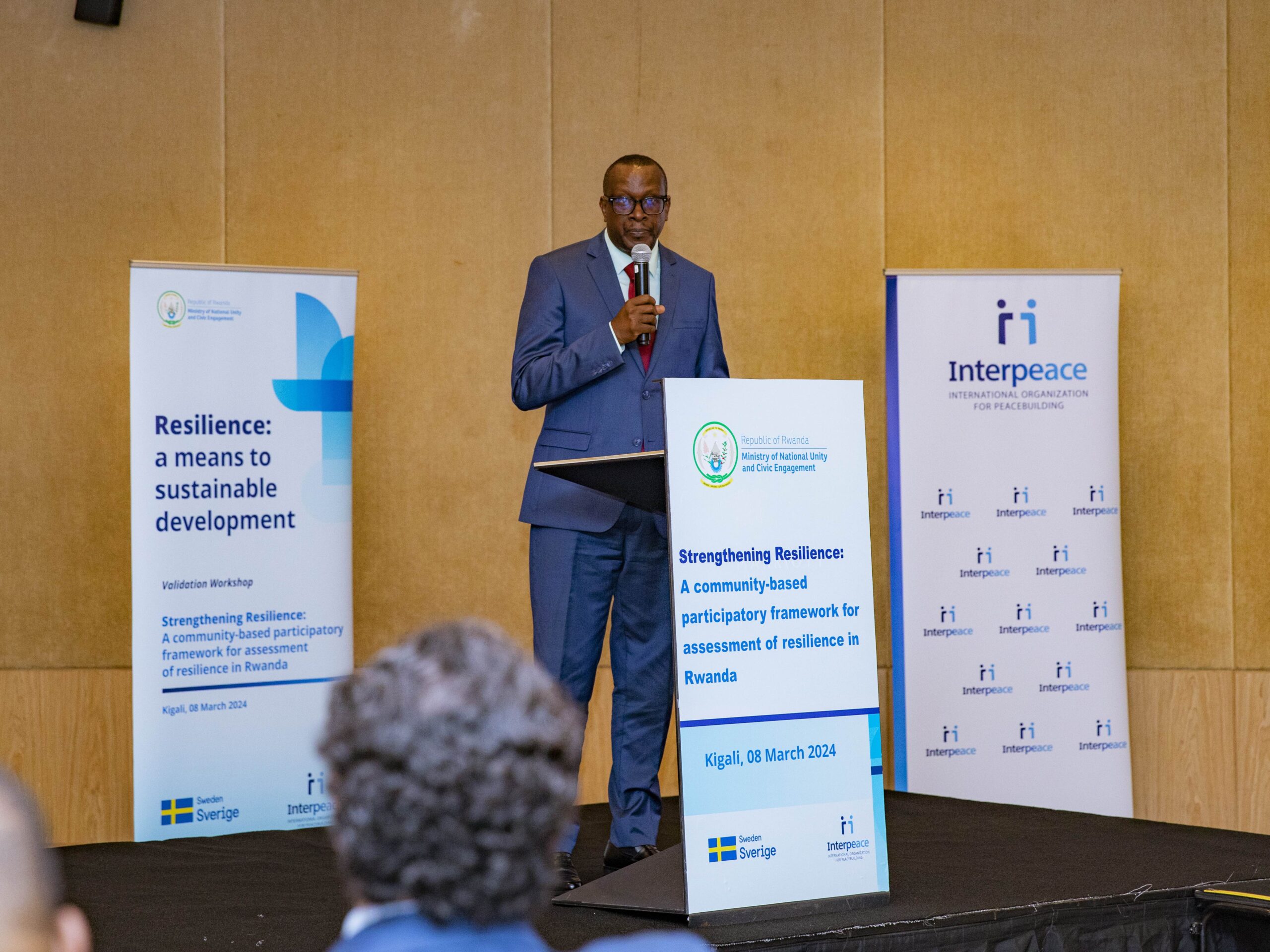
The Ministry of National Unity and Civic Engagement (MINUBUMWE), in collaboration with Interpeace has released new research titled: a Community-based Participatory Framework for the Assessment of Resilience in Rwanda. These findings were presented, along with insightful recommendations, during a stakeholder engagement event held on 8 March 2024 in Kigali, Rwanda.
The objective of this study, conducted across all 30 districts of Rwanda, was fourfold. Firstly, it aimed to formulate and validate resilience indicators for structuring future research activities, policies, and programmes related to community resilience in Rwanda. Secondly, it sought to devise a participatory, multi-level methodology for assessing resilience indicators, drawing from existing frameworks, while tailoring them to Rwanda's specific context. Additionally, the study aimed to establish a baseline for community resilience across all districts of Rwanda and to propose actionable policy and programmatic recommendations for enhancing resilience nationwide. Involving a significant sample of 7,481 individuals, the study adopted a mixed-methods approach, integrating both qualitative and quantitative methods. Resilience was evaluated across four levels—individual, household, community, and institutional—using a comprehensive set of 38 indicators.
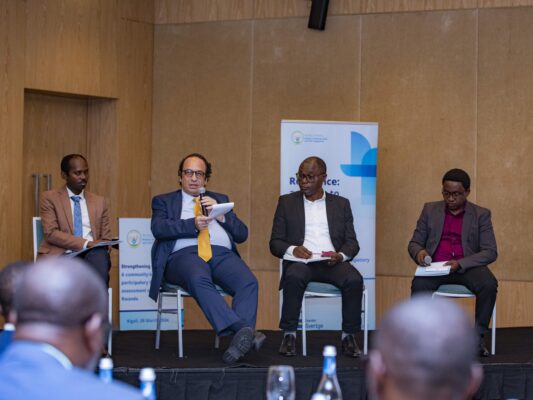
The findings underscored a commendable degree of resilience across all assessed levels, demonstrating a significant milestone three decades after the Genocide against the Tutsi. Recommendations emphasised the need for intensified efforts in societal healing initiatives, infrastructure development, and facilitating access to finance and employment opportunities.
During the stakeholder engagement event, Professor Francois Masabo, a lecturer and researcher at the University of Rwanda, lauded the study. He acknowledged its holistic approach and alignment with Rwanda's contextual realities.
The study received financial support from the Government of Sweden through its embassy in Rwanda. Martina Fors Mohlin, Counselor and Head of Development Cooperation at this embassy, reiterated Sweden's commitment to supporting the implementation of the developed framework within Rwandan communities. “We are proud to have taken part in this study by supporting Interpeace and also the ministry (MINUBUMWE) and enabling this conversation to take place. I very much look forward to working together to take those conclusions forward as we implement them in the society,” she noted.
The Community-based Participatory Framework for the Assessment of Resilience stands as a landmark initiative in Rwanda. It serves as a foundational reference point for future studies in the field of resilience within the country. Honorable Dr. Jean Damascene Bizimana, Minister of National Unity and Civic Engagement, underscored the timeliness of the research, noting Government of Rwanda’ s shift through MINUBUMWE, towards enhancing and strengthening the resilience of Rwandans amidst ongoing challenges stemming from the consequences of the Genocide agains the Tutsi.
“Resilience is one of Rwandan values. We want to design programmes and initiatives that are informed by our cultural values, which will help to effectively address our specific problems. This research that MINUBUMWE conducted jointly with Interpeace responds to this need. It will enable us to strengthen the resilience of Rwandans, to build a peaceful and prosperous country based on concrete and realistic indicators,” Hon. Bizimana highlighted.
As a way forward, a comprehensive roadmap is currently in development. This roadmap will guide the implementation of findings and recommendations derived from the research study. It serves as a strategic blueprint for all stakeholders involved in societal healing and resilience efforts. Each stakeholder will be tasked with setting specific strategic and programmatic objectives, along with corresponding targets and actions. These objectives aim to sustain the gains achieved in resilience while simultaneously addressing any fragilities identified during the research study.
